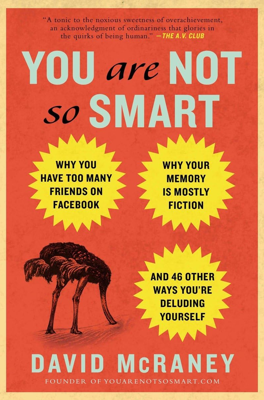Subjective Validation
Misconception vs. Truth
Misconception:
You are skeptical of generalities.
Truth:
You are prone to believing vague statements and predictions are true, especially if they are positive and address you personally.
Forer Effect and Subjective Validation
- Forer Effect: The tendency to accept vague, general statements as being highly accurate for oneself. Named after psychologist Bertram R. Forer, who demonstrated the effect by giving all his students the same personality description, which they rated as highly accurate.
- Experiment Details: Forer's personality descriptions were generic, culled from astrology columns, and yet students rated them 85% accurate.
Generalities as Personal Truths
- Personalization: Individuals tend to personalize vague statements, making them specific to their own experiences and traits. This explains the appeal of horoscopes, astrological readings, and similar pseudosciences.
- Example Statements: General descriptions like "you are critical of yourself yet seek admiration" resonate universally, making them feel personal.
Mechanism of Subjective Validation
- Ambiguous Statements: When statements are ambiguous and seem to address the person directly, individuals interpret them in ways that match their own traits and experiences.
- Cultural and Genetic Similarity: Despite cultural differences, humans are genetically similar, leading to common mental and emotional patterns that vague statements can easily address.
- Psychological Drive: The human brain seeks order and personal relevance, leading to the interpretation of generalities as specific truths.
Application to Pseudoscience and Mysticism
- Vulnerabilities: People are more susceptible to believing in pseudoscience and mysticism due to the subjective validation effect, which exploits the personal relevance bias.
- Examples: Astrology, numerology, tarot readings, and biorhythms are popular because they use vague, adaptable statements to create a sense of personal relevance and accuracy.
Cold Reading and Deception
- Cold Reading Technique: Starts with general statements and narrows down to specific insights based on the subject's responses and cues. It leverages the Forer effect to make people believe in psychic abilities.
- Ray Hyman's Experience: Hyman, a magician turned mentalist, initially began to believe he had psychic powers due to the strong positive responses from his clients. He later realized that success in cold reading was due to subjective validation, not actual psychic ability.
Susceptibility to Suggestion
- Human Brain's Role: The tendency to seek patterns and order leads people to find faces in clouds and meaning in random events, reinforcing the illusion of psychic predictions or mystical insights.
- Defensive Mechanism: Realizing the similarities in human experiences and the generality of many statements can help counter the persuasive power of pseudoscience and mysticism.
Practical Strategies
- Critical Evaluation: To avoid falling for subjective validation, read multiple horoscopes or generalized statements and notice their universal applicability.
- Skepticism: Understand that supposed personal insights are often broader generalities that apply to everyone. Recognizing this can help diminish the influence of pseudoscientific or mystical claims.
